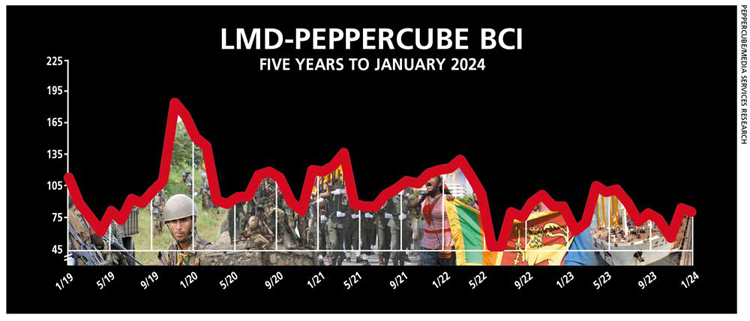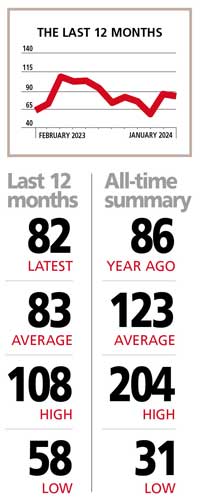January, 31, 2024

The Annual Policy Statement 2024 claims that the nation has confronted its most challenging economic and societal difficulties in the post-independence era in recent years. It states that policy measures have played a pivotal role in restoring stability – albeit at a socioeconomic cost.
In the meantime, the Governor of the Central Bank of Sri Lanka Dr. Nandalal Weerasinghe recently announced that an agreement in principle (AIP) has been reached with the Official Creditors Committee (OCC) and EXIM Bank of China for debt restructuring.
Furthermore, he affirmed that the government has completed the Domestic Debt Optimisation (DDO) programme.
Simultaneously, trade minister Nalin Fernando assured a substantial 75 percent reduction in the cost of living by the end of the first quarter. He attributed this to the favourable economic growth at the beginning of 2024.
In addition, the Central Bank reported that official reserves rose from US$ 3.5 billion in November to 4.4 billion dollars at the end of December.

THE INDEX Despite these positive indicators, the LMD-PEPPERCUBE Business Confidence Index (BCI) experienced a three basis point dip in January, dropping to 82 compared to the previous month’s 85.
The business barometer has exhibited volatility with highs and lows in recent months. The decline in January, following the sudden upswing in December, bears testimony to this.
PepperCube Consultants attributes the dip in the index to the increase in the value added tax (VAT) rate to 18 percent and removal of VAT exemptions on 97 out of 138 goods.
It notes that despite the anticipated 2.5 percent rise in inflation as a result of the VAT hike, the corporate community remains resolute in its optimism regarding the economy, investment climate and maintaining business volumes, adding: “This optimism is particularly evident in the outlook for the next 12 months.”
Regardless of the slight decline in the index, the BCI is only a few points shy of where it stood 12 months ago (86) and the average since then (83) – but it lags by a whopping 41 points in relation to the all-time average of 123.
SENSITIVITIES Businesses are currently contending with formidable challenges – high costs and taxes, not to mention the interest rate regime. In addition, wars in both Gaza and Ukraine continue to leave little room for stability on the external front.
For instance, the Houthi led attacks on cargo vessels in the Red Sea are forcing major shipping companies to consider rerouting journeys. This poses a risk to global supply chains, given that ships travelling to or from the Indian Ocean to the Suez Canal pass through the Red Sea. Rerouting will be costly affair.
PROJECTIONS We feel that the BCI is unlikely to gain any substantial ground at least until there’s clarity on the timing and conduct of one or more elections this year.
There are concerns too about the financial stability of businesses – especially SMEs. This apprehension stems from the potential for political turmoil ahead of elections.
Video Story